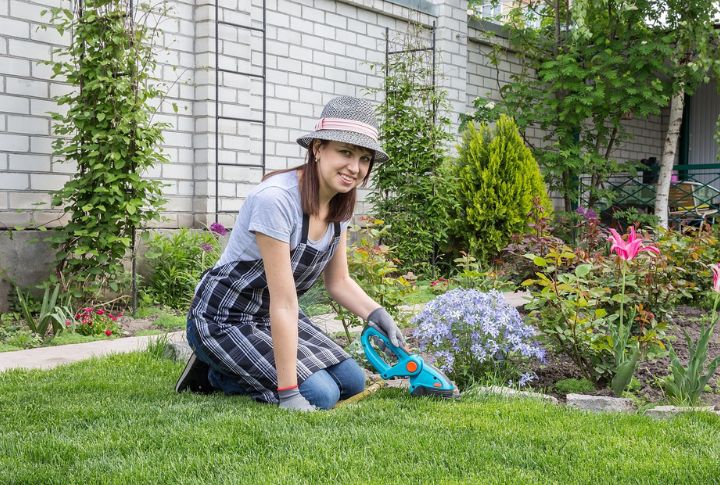
There was a time when luxury meant something shiny and fast, a statement piece that caught eyes and turned heads. Today, prestige blooms differently. The backyard garden has become the new mark of sophistication, a living reflection of mindfulness, sustainability, and taste.
What began as a pandemic pastime has matured into a cultural movement. More than decor, more than recreation, it symbolizes control over chaos, an antidote to the digital frenzy that defines modern life. To cultivate a garden now is to proclaim that you possess the most exclusive resource of all: time.
That understanding connects directly to the first seed planted, because every backyard garden begins as a deliberate act to slow down, engage, and create something lasting.
Where The Prestige Begins
Before the beauty comes the dirt. There is a ritual to prepare the ground, one that speaks to a kind of grounded elegance. The soil must be turned and tested, and must be rich with compost and earthworms. This soil humbles its keeper. It teaches patience and presence, forcing one to exchange instant gratification for gradual progress.
That lesson naturally leads to the rhythm of seasons, because once the soil is ready, time becomes the next teacher.
Growth As A Mirror Of Character
Growth in a backyard garden does not happen on demand. Seeds germinate at their own pace. Some sprout overnight; others linger for weeks beneath the surface. In those waiting periods, the gardener learns humility.
Naturally, as plants mature, pride begins to take on a new shape, and that satisfaction spills outward into how the world perceives the act of gardening itself.
A Status Rewritten: The Garden As Symbol
Those who cultivate their own produce signal discernment. They demonstrate that prestige now grows through connection rather than consumption. Social media reinforces this shift, but the appeal runs deeper than aesthetics. That’s because a lush backyard tells a story of care, of stewardship, of knowing how to balance modern ambition with timeless practice.
From here, it becomes clear that design and cultivation are inseparable.
Designing The Modern Sanctuary
Gone are the days of sterile lawns trimmed into submission. The modern garden celebrates abundance and character. It mixes edible plants with ornamentals, turning function into art. Raised wooden beds line gravel paths; fig trees create pockets of shade beside clusters of lavender. The result is not a garden that imitates nature, but one that collaborates with it.
That beauty, however, is not merely aesthetic. It deepens through physical labor, where the act of digging transforms into something almost spiritual.
The Physical Joy Of Digging
There is a rhythm in turning soil that few other activities replicate. Muscles tighten, breath steadies, and concentration deepens. Each stroke of the shovel feels purposeful. To shape the land by hand is to claim agency over your environment. And the more you dig, the more you realize that effort itself becomes part of the reward.
That reward, in turn, culminates in the harvest.
Harvest As Fulfillment
Harvest is proof of consistency. It validates every decision—the day you watered instead of scrolling, the morning you weeded under gray skies. Each fruit and vegetable becomes a tangible reflection of your discipline. Prestige in this moment is about quiet fulfillment, the kind that lingers long after the meal is over.
Yet the true power of gardening extends beyond personal joy. It blooms in the community.
Sharing The Abundance
The new prestige is generosity. Modern gardeners trade zucchini for basil, exchange seeds with neighbors, and teach friends how to grow without pesticides. Community gardens thrive in cities once defined by concrete. People find common ground, both literally and emotionally, among rows of sunflowers and kale.
These exchanges redefine status. The gardener who gives away produce becomes a small source of abundance in a world obsessed with scarcity. This sense of shared prestige naturally evolves as seasons change, reminding us that nothing in a garden—or in life—stands still.
The Prestige That Grows
In the end, the backyard garden represents more than taste or trend—it captures a shift in what people admire. Prestige has turned inward, toward those who create instead of collect, who find meaning in growth instead of ownership.
In short, among soil, roots, and patience, we’ve rediscovered what sophistication truly feels like: quiet and alive.

